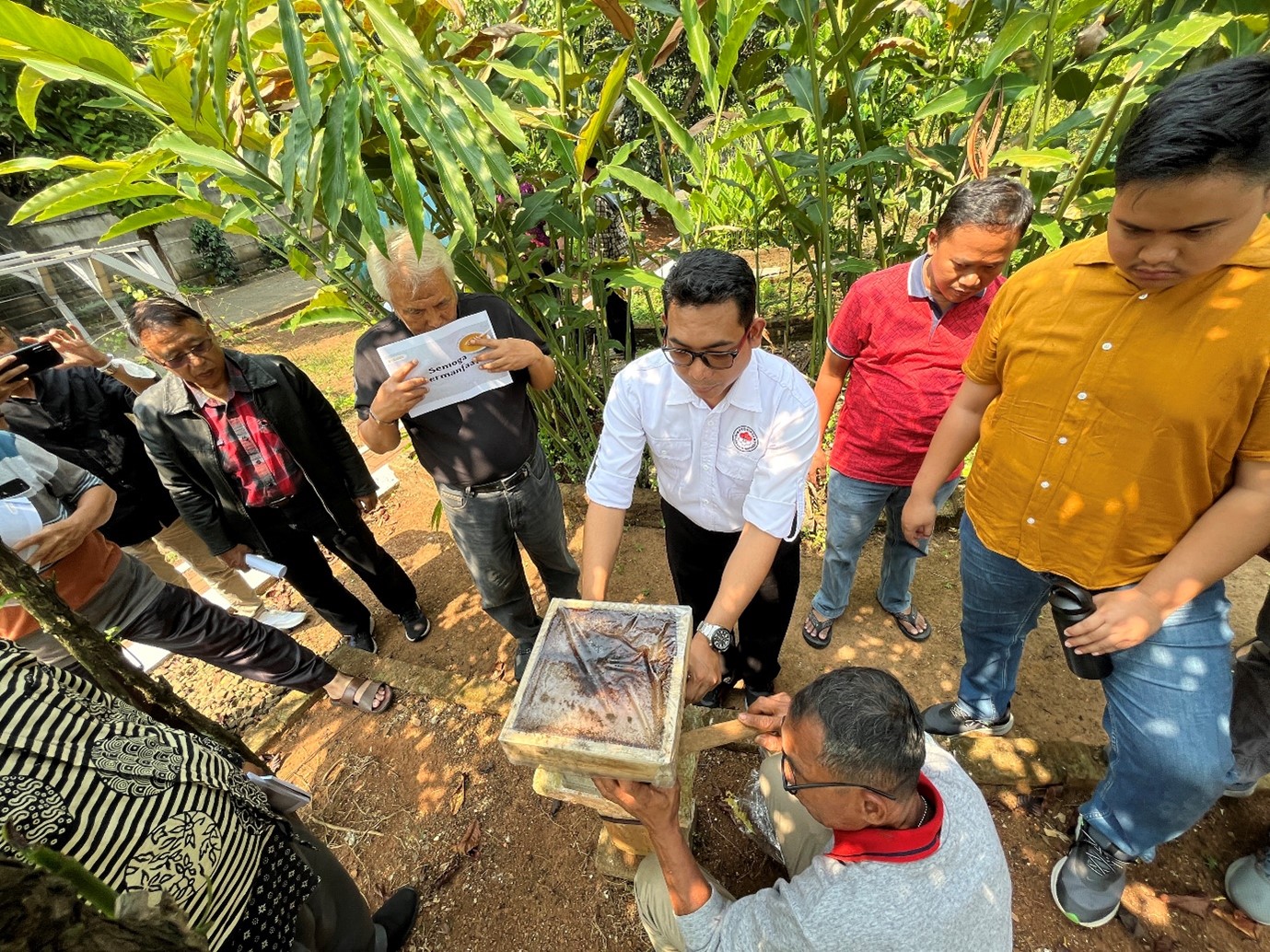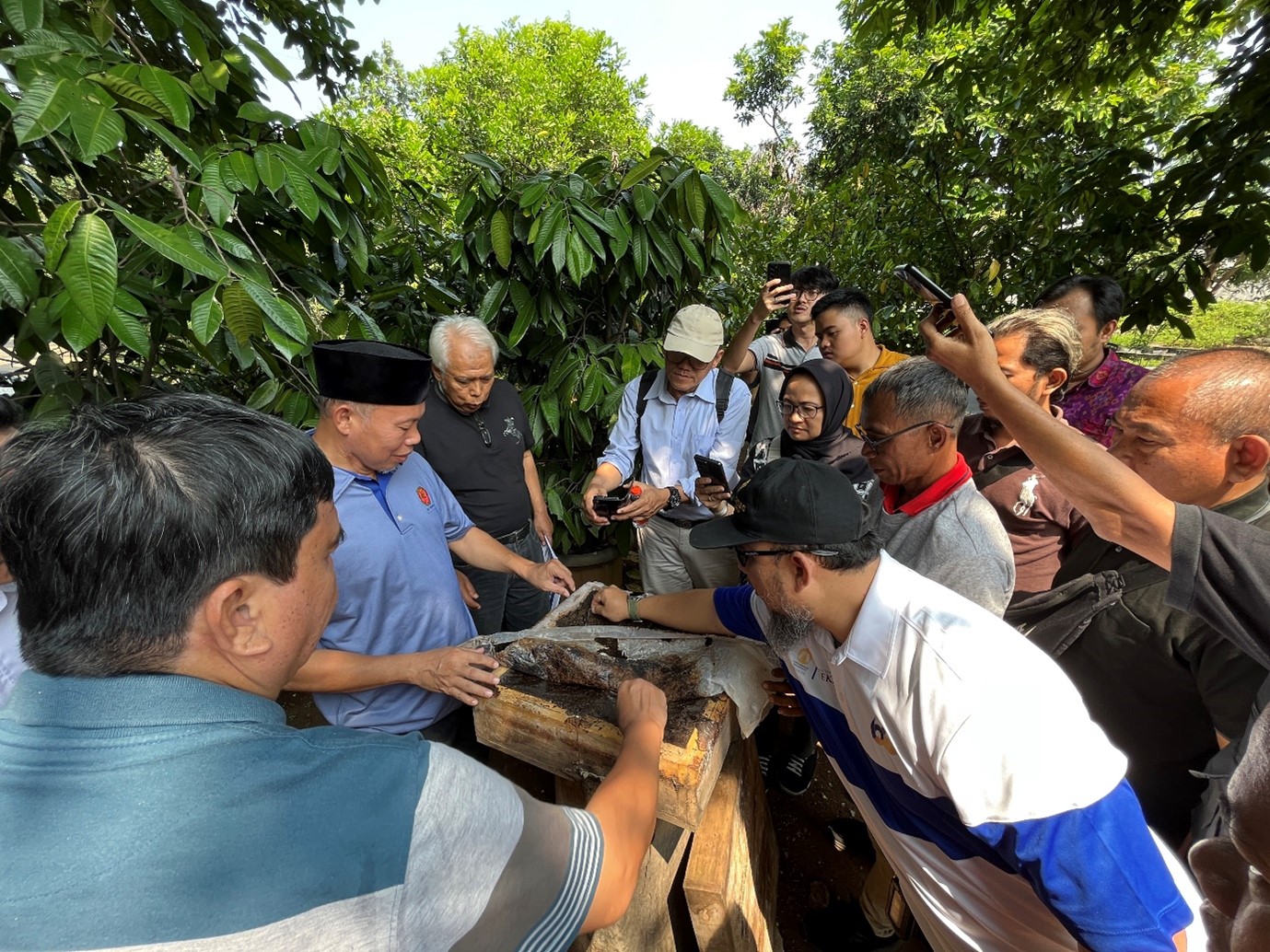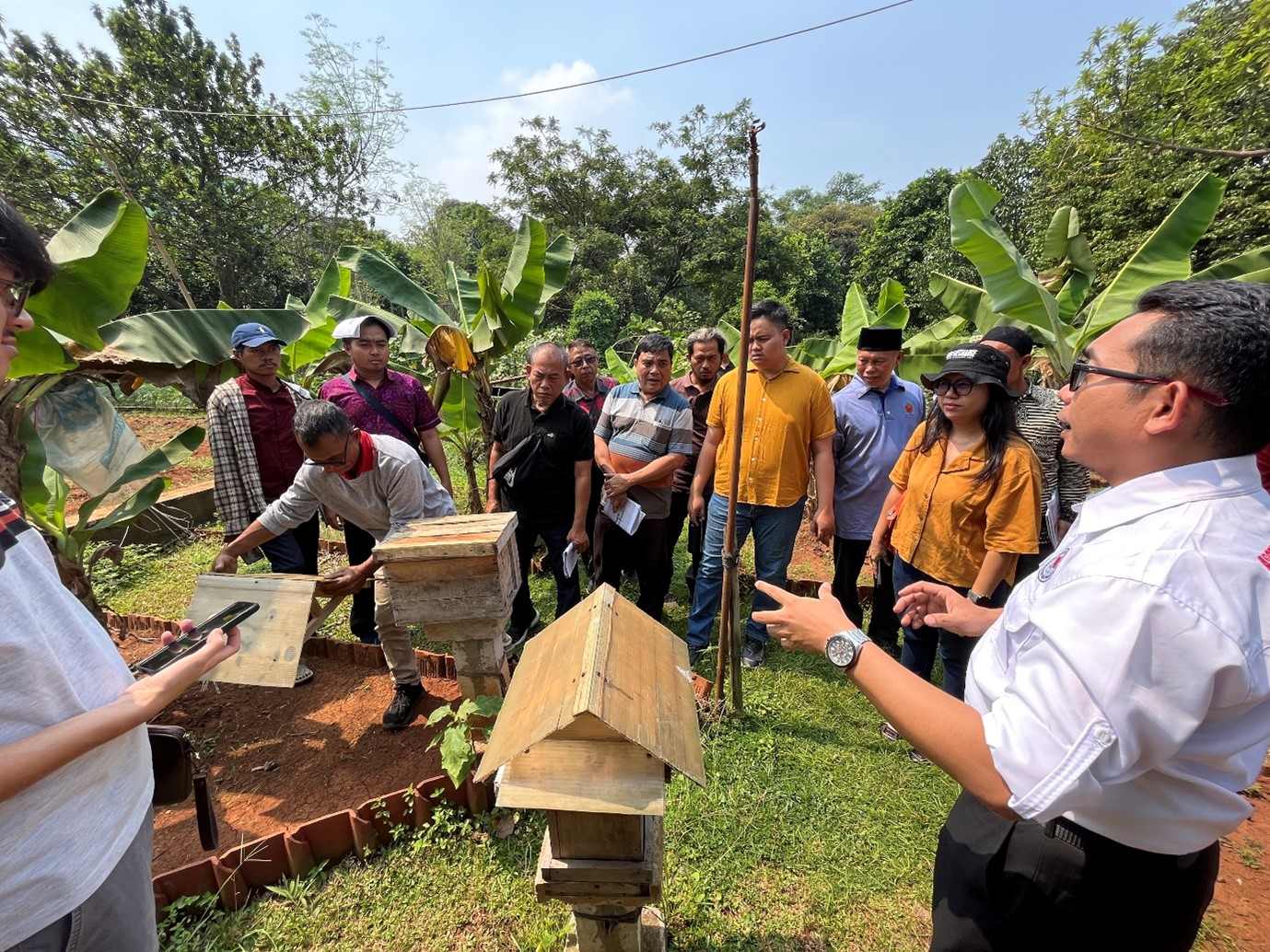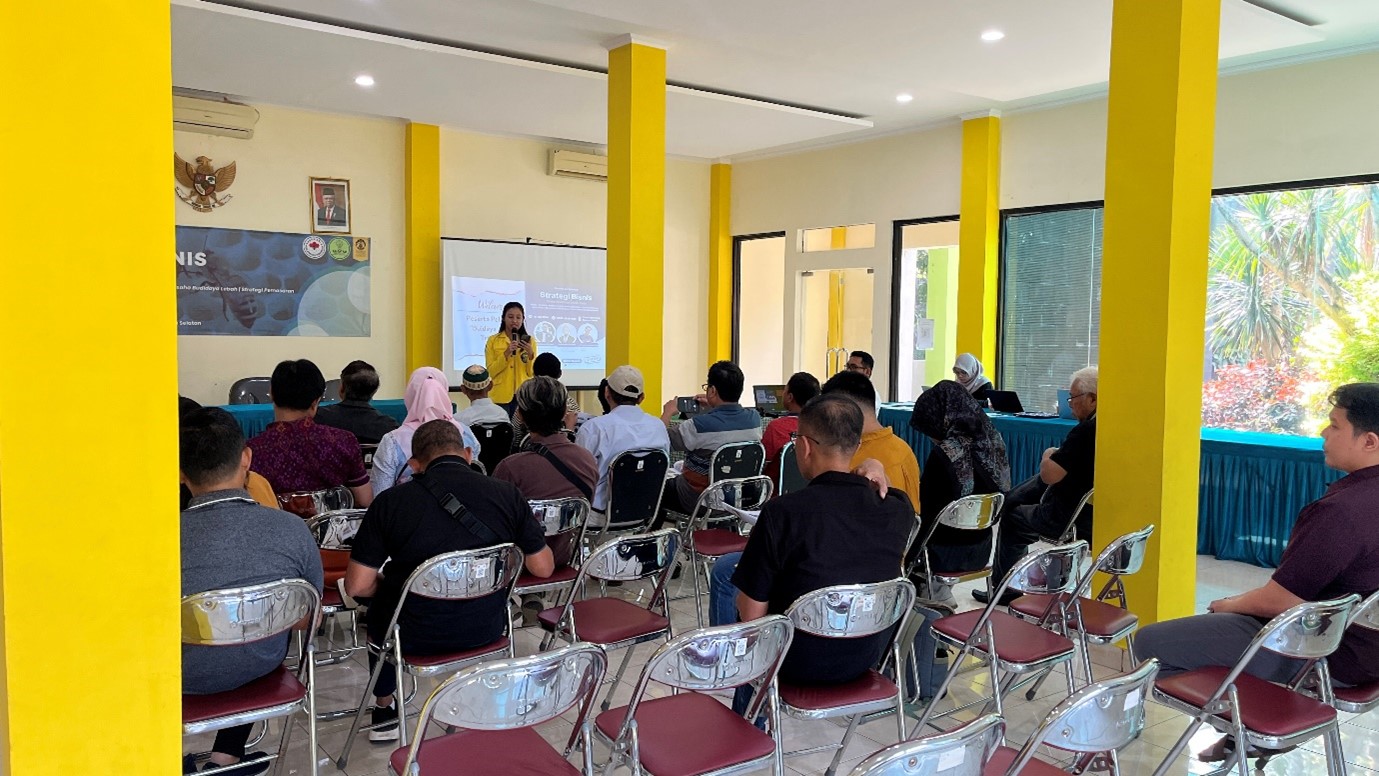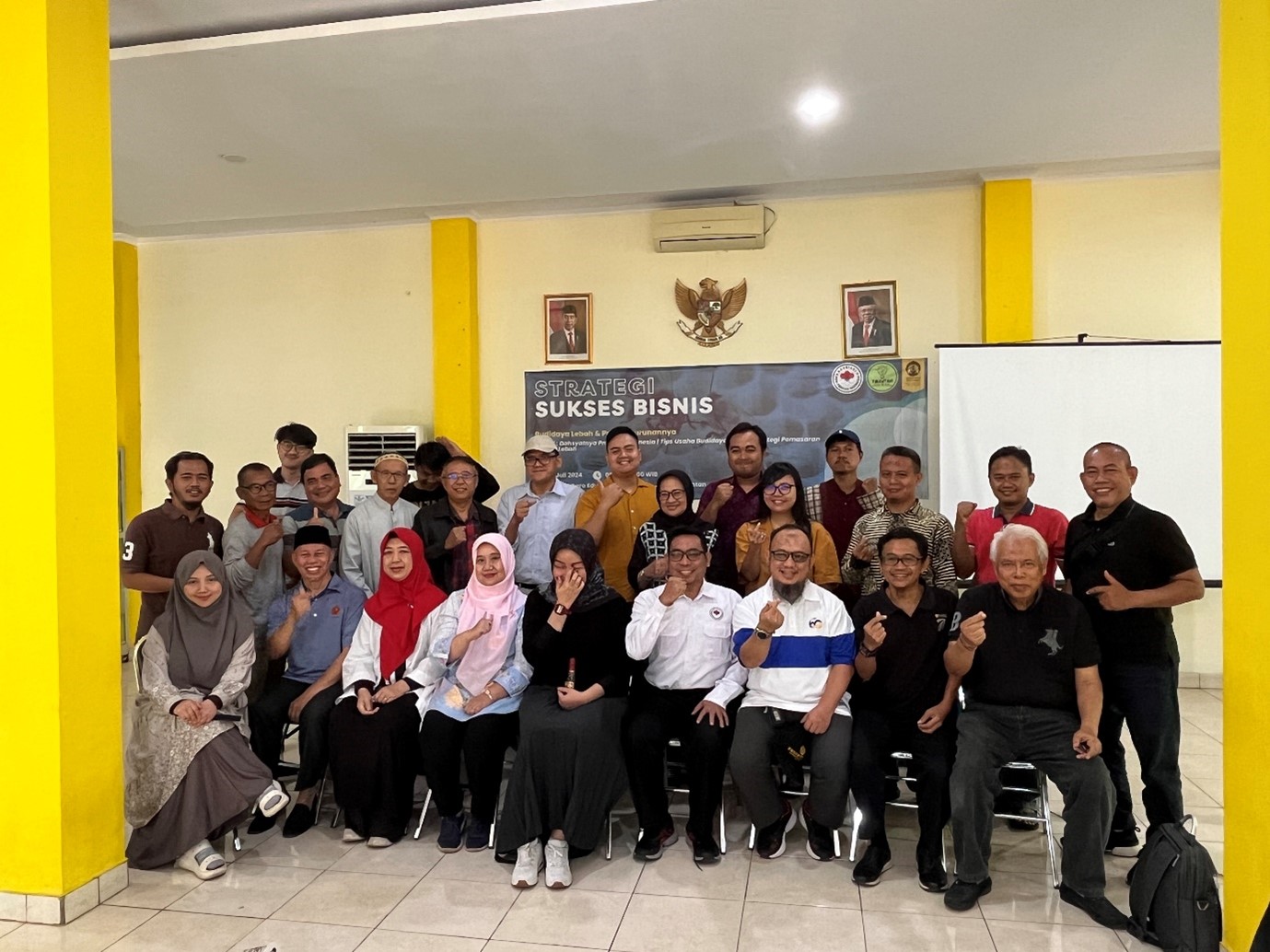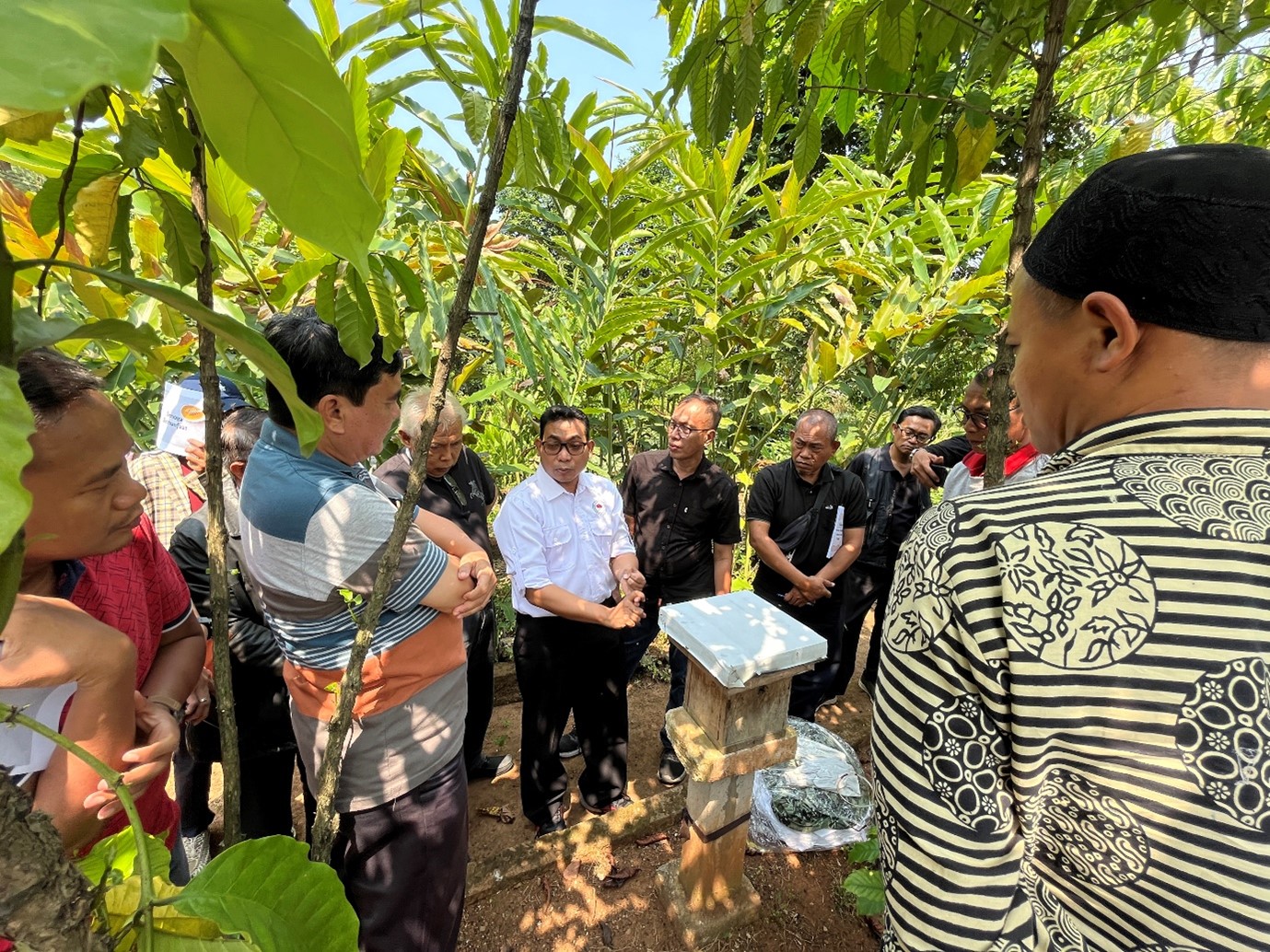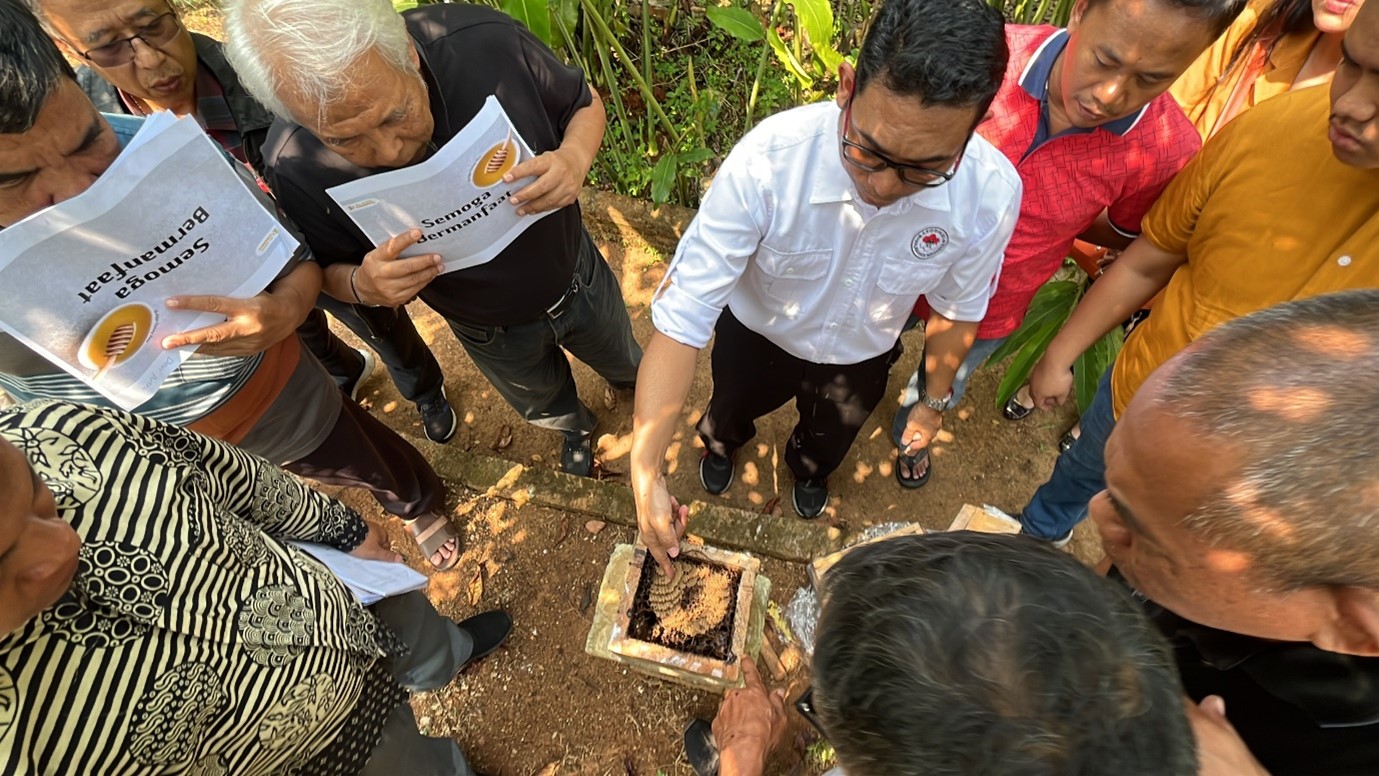Dr. Muhamad Sahlan, a lecturer in the Department of Chemical Engineering at the Faculty of Engineering (FT), Universitas Indonesia (UI), is a prominent advocate for promoting beekeeping in Indonesia to produce the best honey. He previously developed Indonesian propolis from stingless bees (Tetragonula biroi aff) as an alternative treatment and prevention against the spread of COVID-19.
As an educator, Dr. Sahlan actively engages with the community to share knowledge on optimal beekeeping practices, most recently through an event organized by FT UI in collaboration with the Indonesian Beekeeping Association DKI Jakarta and Talentani. The event, themed “Successful Strategies for Beekeeping Business and Its Products,” provided educational content and practical training on beekeeping and related products.
Dr. Sahlan and his team, including Dr. Safira Candra Asih, Dr. Apriliana Cahya Khayrani, and Dr. Kenny Lischer, delivered sessions on beekeeping and product development. Experts such as Akso Diana, S.Pt, M.Si from the Ministry of Agriculture discussed honey bee farming theories, emphasizing the potential for increasing community income through beekeeping, especially when integrated with eco-tourism and modern processing systems.
Akso noted that integrating beekeeping with eco-tourism requires adequate site planning and the availability of flowering plants throughout the year. “This will attract visitors with plants like Xantos, bridal tears, sunflowers, and others. Additionally, using modern harvesting and post-harvest equipment can help maintain honey quality,” he said.
Bees Can Improve Fruit Quality and Quantity
Another speaker, Dr. Rambat Lupiyoadi from the Faculty of Economics and Business at UI, discussed the design and development of sustainable honey bee business models to support the growth of the beekeeping industry. He recommended that beekeeping could be a promising business alternative as it benefits surrounding plants and meets the high demand for honey due to low local production.
Dr. Rambat highlighted that bees improve both the quality and quantity of fruit and the current high potential for honey consumption presents an opportunity. “To meet honey import needs, beekeeping can financially benefit farmers and honey producers,” he said.
Shofia Nurul Hakim, S.Pt., M.P. from the Ministry of Agriculture, addressed policies supporting value-added honey products and domestic and international honey marketing. She explained that in 2024, the Ministry of Agriculture, particularly the Directorate General of Livestock and Animal Health (Ditjennak), will provide tools and building renovations to beekeeping groups to enhance their value in Indonesia.
The event received positive feedback, evidenced by the enthusiasm of participants from various institutions, including urban farmer groups, Ditjennak, pesantren, and private companies. “I am fortunate to attend and gain new knowledge about the beekeeping business from one of the speakers,” said Hidayat, a retired PT Malindo employee interested in the honey business. Another participant shared, “I now understand how to manage honey production and its derivatives. Previously, I learned independently through YouTube,” said Isa Iskandar, a ustad at Pondok Pesantren Wadi Al-Barokah, Ciherang Bogor.
This event, held on July 27, 2024, is part of UI’s community service (pengmas) efforts led by Dr. Muhamad Sahlan. “This pengmas activity is part of the university’s tri-dharma, where participants are educated on beekeeping and its products such as honey, propolis, Royal Jelly, Bee Bread, and Bee Venom. Propolis has a high value for cancer prevention and fungus treatment. This pengmas also provides insights into business models for sustainable beekeeping,” said Dr. Sahlan.
At the end of the event, participants had the opportunity for discussion and Q&A, allowing for interaction and a deeper understanding of beekeeping. “Thank you very much to the UI team and the Indonesian Beekeeping Association DKI Jakarta for the bee seedlings provided; I hope it will be beneficial for education at Taman Agro Edu Wisata Ragunan,” said Banih, Head of the Urban Farmer Group.
FTUI Dean, Prof. Dr. Ir. Heri Hermansyah, S.T., M.Eng., IPU, commented, “The FTUI pengmas team representing Universitas Indonesia, along with the Indonesian Beekeeping Association and Talentani, is committed to supporting the development of the beekeeping industry and promoting sustainable practices. Through community service activities, we hope to create broader economic opportunities and strengthen the beekeeping sector in Indonesia.”
***
Public Communication Office
Faculty of Engineering Universitas Indonesia

